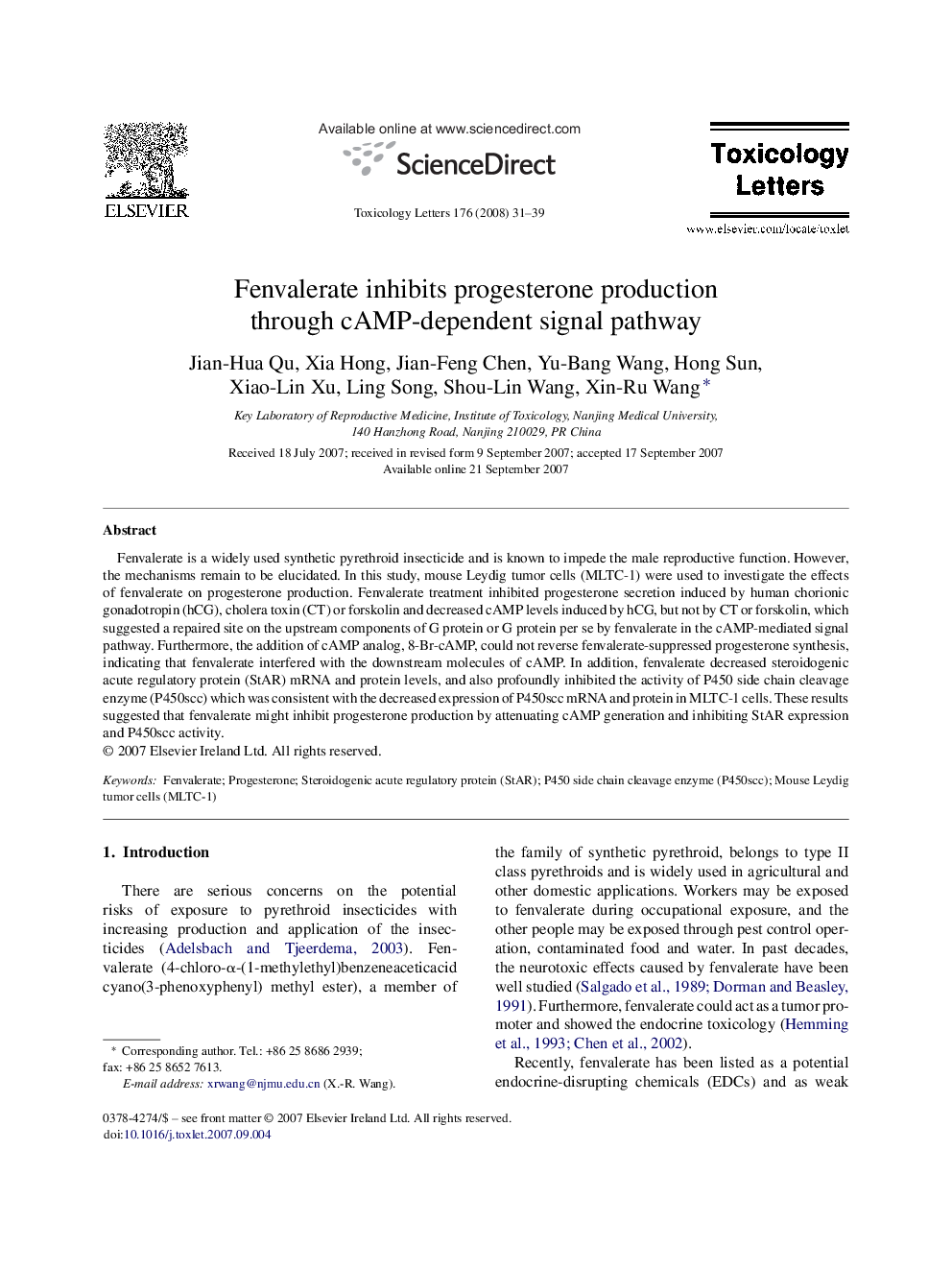| Article ID | Journal | Published Year | Pages | File Type |
|---|---|---|---|---|
| 2601784 | Toxicology Letters | 2008 | 9 Pages |
Abstract
Fenvalerate is a widely used synthetic pyrethroid insecticide and is known to impede the male reproductive function. However, the mechanisms remain to be elucidated. In this study, mouse Leydig tumor cells (MLTC-1) were used to investigate the effects of fenvalerate on progesterone production. Fenvalerate treatment inhibited progesterone secretion induced by human chorionic gonadotropin (hCG), cholera toxin (CT) or forskolin and decreased cAMP levels induced by hCG, but not by CT or forskolin, which suggested a repaired site on the upstream components of G protein or G protein per se by fenvalerate in the cAMP-mediated signal pathway. Furthermore, the addition of cAMP analog, 8-Br-cAMP, could not reverse fenvalerate-suppressed progesterone synthesis, indicating that fenvalerate interfered with the downstream molecules of cAMP. In addition, fenvalerate decreased steroidogenic acute regulatory protein (StAR) mRNA and protein levels, and also profoundly inhibited the activity of P450 side chain cleavage enzyme (P450scc) which was consistent with the decreased expression of P450scc mRNA and protein in MLTC-1 cells. These results suggested that fenvalerate might inhibit progesterone production by attenuating cAMP generation and inhibiting StAR expression and P450scc activity.
Related Topics
Life Sciences
Environmental Science
Health, Toxicology and Mutagenesis
Authors
Jian-Hua Qu, Xia Hong, Jian-Feng Chen, Yu-Bang Wang, Hong Sun, Xiao-Lin Xu, Ling Song, Shou-Lin Wang, Xin-Ru Wang,
